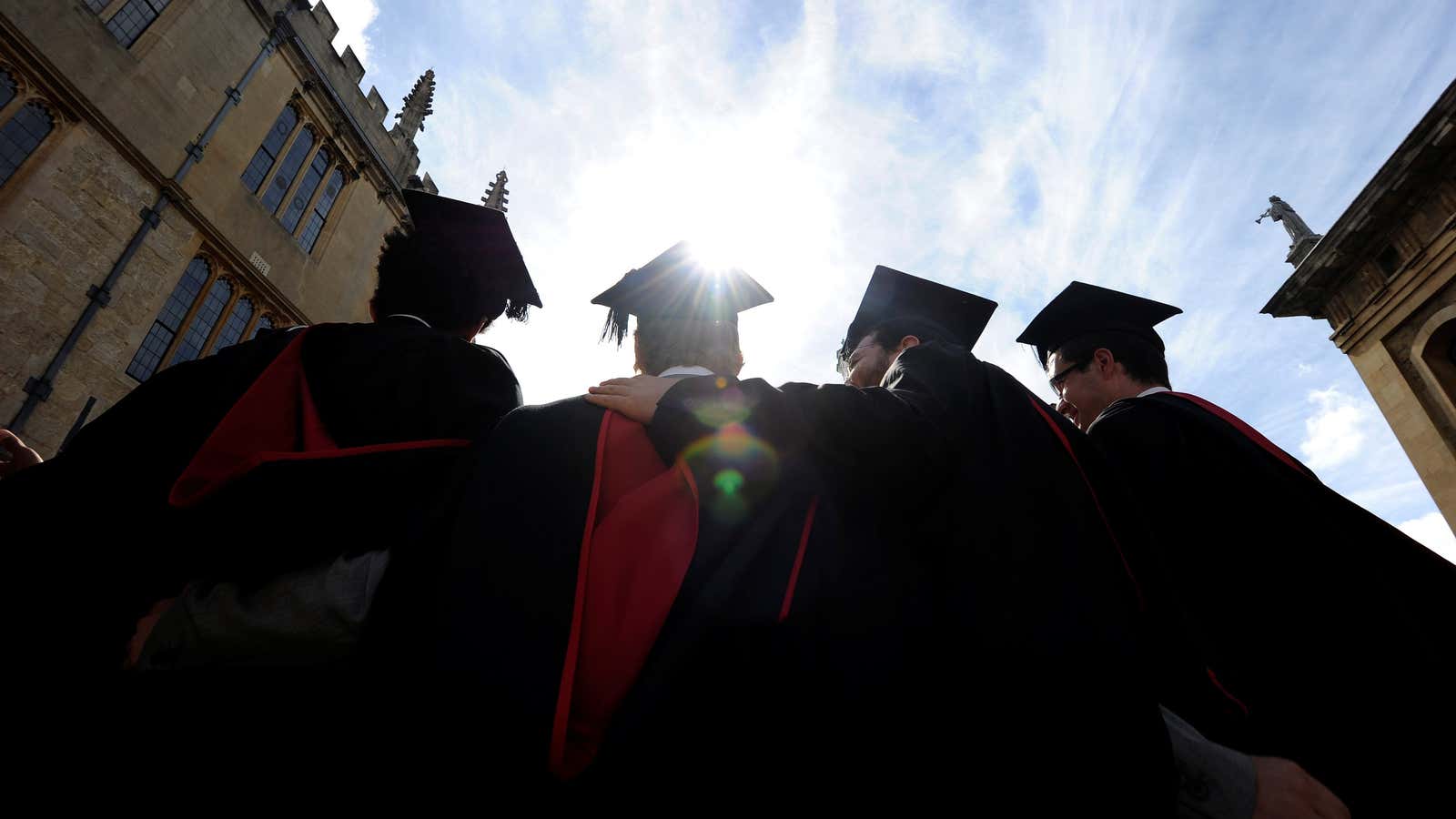In a bid to attract millennial voters, US presidential candidates are promising to make college more affordable (paywall) and accessible. But across the Atlantic, the UK government is being encouraged to go the other way.
The number of graduates in the British labor market has skyrocketed, according to a recent report (pdf) by the Chartered Institute of Personnel and Development. In 1979, around 12% of young people went to higher education, by 2011 the figure increased to 46.6%.
A growing number of these graduates went on to take jobs that were traditionally occupied by non-graduates. With little evidence to suggest that these jobs required the skills new graduates bring, the report “raises the question as to what the graduates themselves, and what society at large, gains from their university attendance.”
In 1979, only 1.6% of police officers had a university qualification, by 2014 that number jumped to 34.1%. While 22% of teaching assistants entered their jobs with a degree in 2014, only 4.2% did so in 1994.
With average graduate debt now totaling £44,000 ($54,077), and 45% of graduates not earning enough to repay their student loans, the report questions the logic of getting more young people into university. Even in jobs that now require more skills, the report suggests that lower-cost alternative routes could, or in many cases, do, exist.
The report calls on the government to promote alternative, vocational pathways into work, such as high quality apprenticeships. A 2016 survey of 1,000 16-to-18-year-olds by the Association of Chartered Certified Accountants found that one-third (pdf) of respondents had never received advice on apprenticeships, with 61% believing employers prefer graduates and 65% saying their parents wanted them to go to university.
The report also suggests that the existing quality of vocational education and training could be improved. Currently, nearly two-thirds of all apprenticeships are created at Level 2, roughly equivalent to a US high school diploma, with just 36% at Level 3, which is roughly equivalent to requiring some college level coursework at the US high school level. The report argues that unless the number of high-quality vocation is increased, the government will fail to address the bias towards university education.
